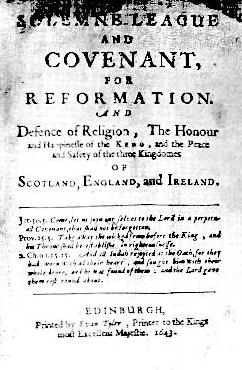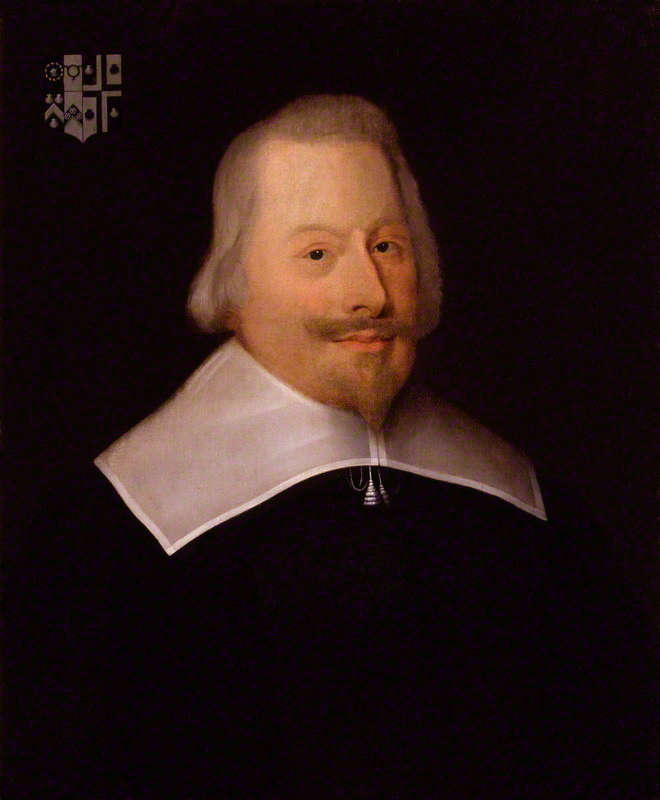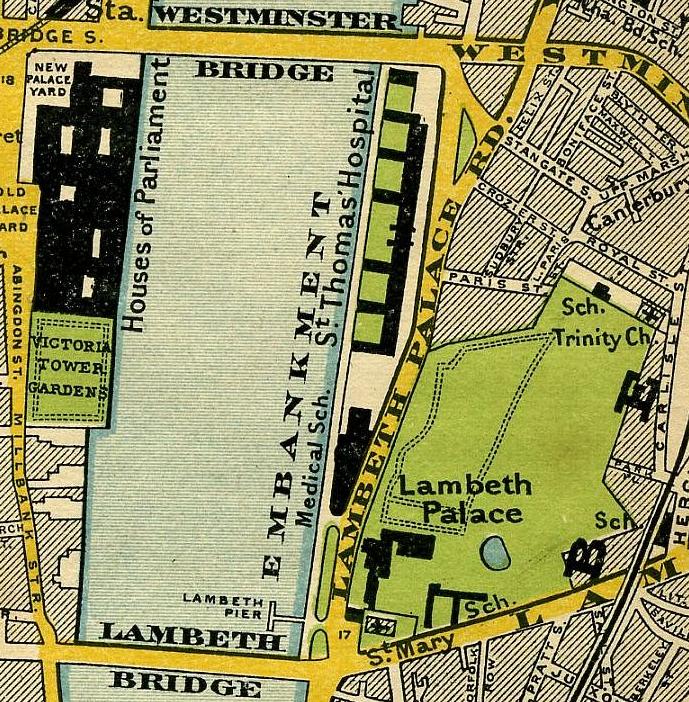|
Peter Smart (poet)
Peter Smart (1569–1652?) was an Anglican Puritan clergyman, kept imprisoned for 12 years after he preached against innovations in the ceremonies at Durham Cathedral. Life He was born at Lighthorne, Warwickshire, the son of a clergyman William Smart (Daniel Smart, presented in 1624 to the rectory of Oxhill, Warwickshire being a brother). He was educated at Westminster School under Gabriel Goodman and Edward Grant, with Richard Neile. On 25 October 1588, aged 19, he matriculated as a batler (poor scholar) at Broadgates Hall, Oxford and was elected (before April 1589) to a studentship at Christ Church, Oxford where he wrote some Latin verse, and commenced B.A. 26 June 1592, M.A. 9 July 1595. William James, promoted in 1596 from Dean of Christ Church to Dean of Durham, appointed Smart in 1598 to the mastership of Durham Grammar School. James, when he became bishop of Durham (1606), ordained Smart, made him his chaplain, and gave him the rectory of Boldon, co. Durham in 160 ... [...More Info...] [...Related Items...] OR: [Wikipedia] [Google] [Baidu] |
Anglican
Anglicanism is a Western Christian tradition that has developed from the practices, liturgy, and identity of the Church of England following the English Reformation, in the context of the Protestant Reformation in Europe. It is one of the largest branches of Christianity, with around 110 million adherents worldwide . Adherents of Anglicanism are called ''Anglicans''; they are also called ''Episcopalians'' in some countries. The majority of Anglicans are members of national or regional ecclesiastical provinces of the international Anglican Communion, which forms the third-largest Christian communion in the world, after the Roman Catholic Church and the Eastern Orthodox Church. These provinces are in full communion with the See of Canterbury and thus with the Archbishop of Canterbury, whom the communion refers to as its '' primus inter pares'' (Latin, 'first among equals'). The Archbishop calls the decennial Lambeth Conference, chairs the meeting of primates, and is the ... [...More Info...] [...Related Items...] OR: [Wikipedia] [Google] [Baidu] |
Prebend
A prebendary is a member of the Roman Catholic or Anglican clergy, a form of canon with a role in the administration of a cathedral or collegiate church. When attending services, prebendaries sit in particular seats, usually at the back of the choir stalls, known as prebendal stalls. History At the time of the ''Domesday Book'' in 1086, the canons and dignitaries of the cathedrals of England were supported by the produce and other profits from the cathedral estates.. In the early 12th century, the endowed prebend was developed as an institution, in possession of which a cathedral official had a fixed and independent income. This made the cathedral canons independent of the bishop, and created posts that attracted the younger sons of the nobility. Part of the endowment was retained in a common fund, known in Latin as ''communia'', which was used to provide bread and money to a canon in residence in addition to the income from his prebend. Most prebends disappeared in 1547, ... [...More Info...] [...Related Items...] OR: [Wikipedia] [Google] [Baidu] |
Solemn League And Covenant
The Solemn League and Covenant was an agreement between the Scottish Covenanters and the leaders of the English Parliamentarians in 1643 during the First English Civil War, a theatre of conflict in the Wars of the Three Kingdoms. On 17 August 1643, the Church of Scotland (the Kirk) accepted it and on 25 September 1643 so did the English Parliament and the Westminster Assembly. English Parliament (First Civil War) At the time, the Protestant leaders of the English Parliament were in conflict with King Charles I. Fearing Irish Catholic troops could join the Royalist army, Parliament requested the aid of the Scots. The Presbyterian Covenanters promised their aid, on condition that the Scottish system of church government was adopted in England. This was acceptable to the majority of the English Long Parliament, as many MPs were Presbyterians, while others preferred allying with the Scots to losing the Civil War. After some haggling a document called "'' The Solemn League and Co ... [...More Info...] [...Related Items...] OR: [Wikipedia] [Google] [Baidu] |
Francis Rous
Francis Rous, also spelled Rouse (c. 1581 to 1659), was an English politician and Puritan religious author, who was Provost of Eton from 1644 to 1659, and briefly Speaker of the House of Commons in 1653. Stepbrother of Parliamentary leader John Pym, he joined him in opposing Arminianism in the Church of England, and played a leading role in the impeachment of Archbishop Laud. When the First English Civil War began in 1642, he supported the 1643 Solemn League and Covenant, and was appointed to the Westminster Assembly. Under the Protectorate, he moved away from his Presbyterian colleagues, becoming closer to the religious Independents, and Oliver Cromwell. He died in January 1659, and was buried in Eton College Chapel. Biography Francis Rous was born at Dittisham in Devon around 1581, fourth son of Sir Anthony Rous (ca 1555-1620), and his first wife, Elizabeth Southcote (1547-1585). His father remarried Philippa Colles (died 1620), mother of John Pym; his stepbrother became ... [...More Info...] [...Related Items...] OR: [Wikipedia] [Google] [Baidu] |
Long Parliament
The Long Parliament was an English Parliament which lasted from 1640 until 1660. It followed the fiasco of the Short Parliament, which had convened for only three weeks during the spring of 1640 after an 11-year parliamentary absence. In September 1640, King Charles I issued writs summoning a parliament to convene on 3 November 1640.This article uses the Julian calendar with the start of year adjusted to 1 January – for a more detailed explanation, see old style and new style dates: differences between the start of the year. He intended it to pass financial bills, a step made necessary by the costs of the Bishops' Wars in Scotland. The Long Parliament received its name from the fact that, by Act of Parliament, it stipulated it could be dissolved only with agreement of the members; and those members did not agree to its dissolution until 16 March 1660, after the English Civil War and near the close of the Interregnum.. The parliament sat from 1640 until 1648, when it was p ... [...More Info...] [...Related Items...] OR: [Wikipedia] [Google] [Baidu] |
King's Bench Prison
The King's Bench Prison was a prison in Southwark, south London, England, from medieval times until it closed in 1880. It took its name from the King's Bench court of law in which cases of defamation, bankruptcy and other misdemeanours were heard; as such, the prison was often used as a debtor's prison until the practice was abolished in the 1860s. In 1842, it was renamed the Queen's Bench Prison, and became the Southwark Convict Prison in 1872. Origins The first prison was originally constructed from two houses and was situated in Angel Place, off Borough High Street, Southwark – as with other judicial buildings it was often targeted during uprisings, being burned in 1381 and 1450. During the reign of King Henry VIII, new prison buildings were constructed within an enclosing brick wall. This was eventually demolished in 1761. New building Its 1758 replacement was built at a cost of £7,800 on a site close to St George's Fields (south of Borough Road, close to its junction ... [...More Info...] [...Related Items...] OR: [Wikipedia] [Google] [Baidu] |
Contumacy
Contumacy is a stubborn refusal to obey authority or, particularly in law, the willful contempt of the order or summons of a court (see contempt of court). The term is derived from the Latin word ''contumacia'', meaning firmness or stubbornness. In English ecclesiastical law, it was contempt of the authority of an ecclesiastical court and was dealt with by the issue of a writ from the Court of Chancery at the instance of the judge of the ecclesiastical court. This writ took the place of the ''de excommunicato capiendo'' in 1813, by an act of George III (see excommunication). In the U.S., while not expressly mentioned in the U.S. Constitution, the courts have long asserted an inherent power of judges to punish such refusal, which in this context is known as ''contempt of court''. The U.S. Supreme Court recognized federal courts' inherent power to imprison a person for contumacy in '' United States v. Hudson & Goodwin'' without a reference to a definition of contumacy in common or st ... [...More Info...] [...Related Items...] OR: [Wikipedia] [Google] [Baidu] |
George Abbot (archbishop)
George Abbot (29 October 15624 August 1633) was an English divine who was Archbishop of Canterbury from 1611 to 1633. He also served as the fourth Chancellor of the University of Dublin, from 1612 to 1633. ''Chambers Biographical Dictionary'' describes him as " sincere but narrow-minded Calvinist". Among his five brothers, Robert became Bishop of Salisbury and Maurice became Lord Mayor of London. He was a translator of the King James Version of the bible. Life and career Early years Born at Guildford in Surrey, where his father Maurice Abbot (died 1606) was a cloth worker, he was taught at the Royal Grammar School, Guildford. According to an eighteenth-century biographical dictionary, when Abbot's mother was pregnant with him she had a dream in which she was told that if she ate a pike her child would be a son and rise to great prominence. Some time afterwards she accidentally caught a pike while fetching water from the River Wey and it "being reported to some gentlemen in the ... [...More Info...] [...Related Items...] OR: [Wikipedia] [Google] [Baidu] |
Sir Henry Yelverton
Sir Henry Yelverton (29 June, 1566 – 24 January, 1630) was an English lawyer, politician, and judge. Early life The eldest son of Sir Christopher Yelverton and his wife Margaret Catesby, Henry Yelverton was born on 29 June 1566, most likely at Easton-Mauduit, his father's house in Northamptonshire. He became a barrister on 25 April 1593 and an ancient on 25 May of the same year. He was reader in 1607. Career In 1597, 1604 and 1614 Yelverton was elected to Parliament for the borough of Northampton. On 30 March 1604, when Sir Francis Goodwin's case was before the house, he argued for allowing Goodwin to take his seat in the teeth of the support given by the king to his rejection by chancery. On 5 April, when James had issued his orders, Yelverton was frightened, and argued that the prince's command was like a thunderbolt or the roaring of a lion. In the session of 1606–7 he was again in trouble, attacking George Home, 1st Earl of Dunbar, the king's Scottish favourite, ... [...More Info...] [...Related Items...] OR: [Wikipedia] [Google] [Baidu] |
Lambeth
Lambeth () is a district in South London, England, in the London Borough of Lambeth, historically in the County of Surrey. It is situated south of Charing Cross. The population of the London Borough of Lambeth was 303,086 in 2011. The area experienced some slight growth in the medieval period as part of the manor of Lambeth Palace. By the Victorian era the area had seen significant development as London expanded, with dense industrial, commercial and residential buildings located adjacent to one another. The changes brought by World War II altered much of the fabric of Lambeth. Subsequent development in the late 20th and early 21st centuries has seen an increase in the number of high-rise buildings. The area is home to the International Maritime Organization. Lambeth is home to one of the largest Lusophone, Portuguese-speaking communities in the UK, and is the second most commonly spoken language in Lambeth after English language, English. History Medieval The origins of the ... [...More Info...] [...Related Items...] OR: [Wikipedia] [Google] [Baidu] |
Province Of Canterbury
The Province of Canterbury, or less formally the Southern Province, is one of two ecclesiastical provinces which constitute the Church of England. The other is the Province of York (which consists of 12 dioceses). Overview The Province consists of 30 dioceses, covering roughly two-thirds of England, parts of Wales, all of the Channel Islands and continental Europe, Morocco, Turkey, Mongolia and the territory of the former Soviet Union (under the jurisdiction of the Diocese of Gibraltar in Europe). The Province previously also covered all of Wales but lost most of its jurisdiction in 1920, when the then four dioceses of the Church in Wales were disestablished and separated from Canterbury to form a distinct ecclesiastical province of the Anglican Communion. The Province of Canterbury retained jurisdiction over eighteen areas of Wales that were defined as part of "border parishes", parishes whose ecclesiastical boundaries straddled the temporal boundary between England and Wale ... [...More Info...] [...Related Items...] OR: [Wikipedia] [Google] [Baidu] |
John Cosin
John Cosin (30 November 1594 – 15 January 1672) was an English churchman. Life He was born at Norwich, and was educated at Norwich School and at Caius College, Cambridge, where he was scholar and afterwards fellow. On taking orders he was appointed secretary to John Overall, Bishop of Lichfield, and then domestic chaplain to Richard Neile, Bishop of Durham. In December 1624 he was made a prebendary of Durham, and on 9 September 1625 Archdeacon of the East Riding of Yorkshire (until 1660). In 1630 he received his degree of Doctor of Divinity (DD). He first became known as an author in 1627, when he published his ''Collection of Private Devotions'', a manual stated to have been prepared by command of King Charles I, for the use of Queen Henrietta Maria's maids of honour. This book, together with his insistence on points of ritual in his cathedral church and his friendship with William Laud, exposed Cosin to the hostility of the Puritans; and the book was criticised by Willia ... [...More Info...] [...Related Items...] OR: [Wikipedia] [Google] [Baidu] |






